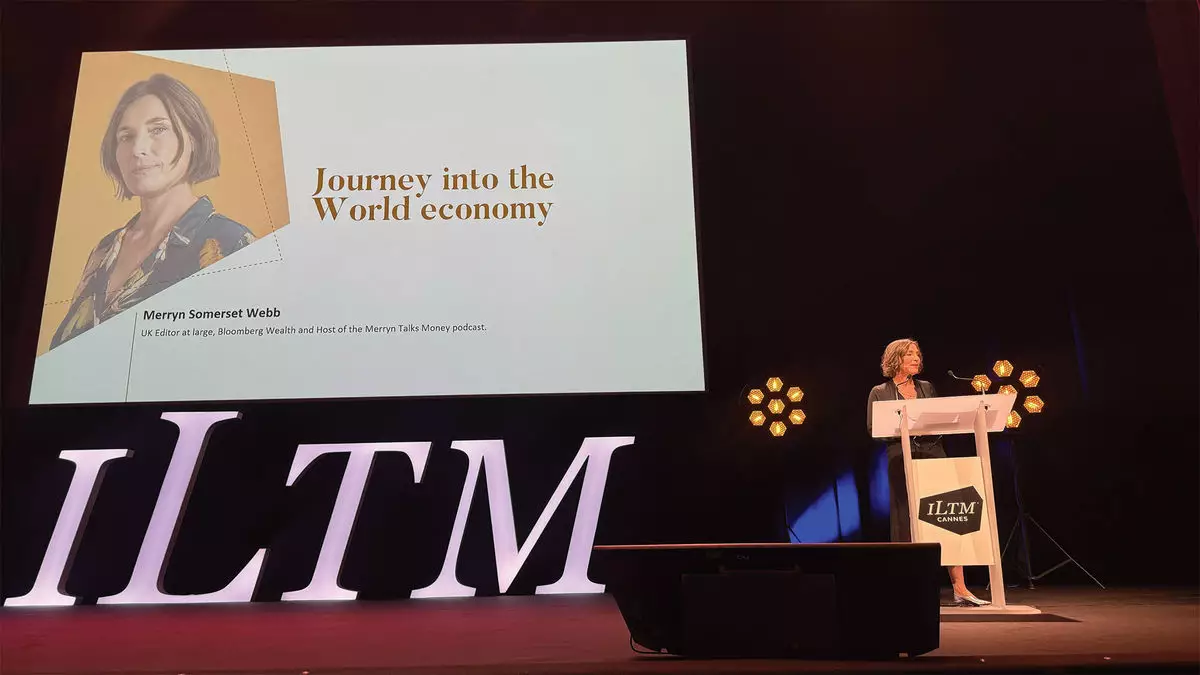As the luxury travel sector recovers from the turbulence of recent years, indicators suggest that a robust trajectory remains ahead. During the ILTM Cannes event, industry experts discussed the underlying dynamics shaping this segment, countering fears of a downturn. Despite global geopolitical tensions and economic uncertainties, key trends hint at sustained growth, albeit with a shifting demographic and behavioral landscape in luxury consumption.
Merryn Somerset Webb, editor at large for Bloomberg Wealth, pointed out several formidable challenges such as geopolitical tensions and decreasing fertility rates. Her assertion that awareness of these issues is crucial resonates deeply in the context of today’s complex world. However, the luxury travel industry appears well-positioned to maneuver these obstacles. Post-pandemic shifts in consumer behavior reveal a populace eager to prioritize meaningful experiences over material possessions—a sentiment amplified by the impending wealth transfer from baby boomers, estimated at $72 trillion.
This pronounced transition towards experiential spending is particularly noteworthy among younger generations. These demographic groups, comprising millennials and Gen Z, demonstrate an affinity for premium travel experiences that transcend traditional luxury offerings. Alex Schellenberger of Mandarin Oriental highlighted the need to cater to this evolving audience, dismissing the notion that merely providing opulent amenities suffices. Instead, the industry must pivot towards unique, unforgettable experiences that appeal to today’s discerning travelers.
Marriott International has similarly acknowledged this shift, adjusting its luxury strategy to harness the rising influence of these young consumers. As Tina Edmundson, the company’s luxury president, noted, the current contribution of millennials and Gen Z to luxury sales is substantial, and it’s projected to escalate dramatically in the coming years. This demographic’s thirst for adventure has prompted Marriott to explore unconventional offerings such as tented lodges in Africa, showcasing the importance of aligning product offerings with consumer desires.
A salient point made during the discussions was the changing face of the luxury consumer. Unlike traditional high-net-worth individuals, a growing segment of aspiring luxury travelers—individuals with a net worth under $1 million—are eager to allocate significant portions of their budgets towards upscale travel. Edmundson’s assertion that many of these consumers are under 40 and do not own homes, yet are willing to spend like affluent travelers, underscores a crucial market niche. This evolving understanding of luxury necessitates a broader approach, where brands must cater to a spectrum of consumers drawn to luxury travel.
The significant financial metrics shared during the event reinforce this trend. Matthew Upchurch of Virtuoso reported an impressive 14% rise in annual sales, with a striking 42% increase for trips exceeding $50,000. Similarly, Lauren Alba highlighted ongoing revenue growth across Leading Hotels of the World, showcasing an industry thriving amid changing paradigms and evolving consumer expenditure priorities. These statistics serve as robust indicators of the sector’s resilience, despite external pressures.
The strength of the luxury travel market is evident not only in sales data but also in attendance figures at industry events. ILTM Cannes experienced record participation this year, with over 10,000 attendees, denoting a healthy appetite for collaboration and networking within the industry. Such high engagement levels illustrate an optimistic sentiment, suggesting that despite the challenges, the luxury sector is gearing up for a prosperous future.
Matthew Upchurch’s reflection that travel emerges stronger following disruptions has repeatedly proved true. As travelers increasingly seek solace and inspiration in unforgettable journeys, the luxury travel sector seems uniquely positioned to fulfill this demand. Brands that harness the insights shared at events like ILTM Cannes, particularly as they relate to evolving consumer expectations and the need for innovation, will likely find themselves at the forefront of this flourishing market.
The luxury travel industry’s future appears robust, bolstered by substantial income transfers, dynamic consumer preferences, and an evolving understanding of luxury itself. By embracing these shifts and adapting strategies to meet the needs of both affluent and aspiring luxury travelers, the sector is not only surviving but thriving. The combination of experiential travel focus and the promise of financial growth amidst uncertainties suggests that luxury travel’s boom is far from over. As consumers increasingly prioritize authentic experiences and seek unique adventures, the industry can confidently look forward to a bright and prosperous horizon.


Napsat komentář